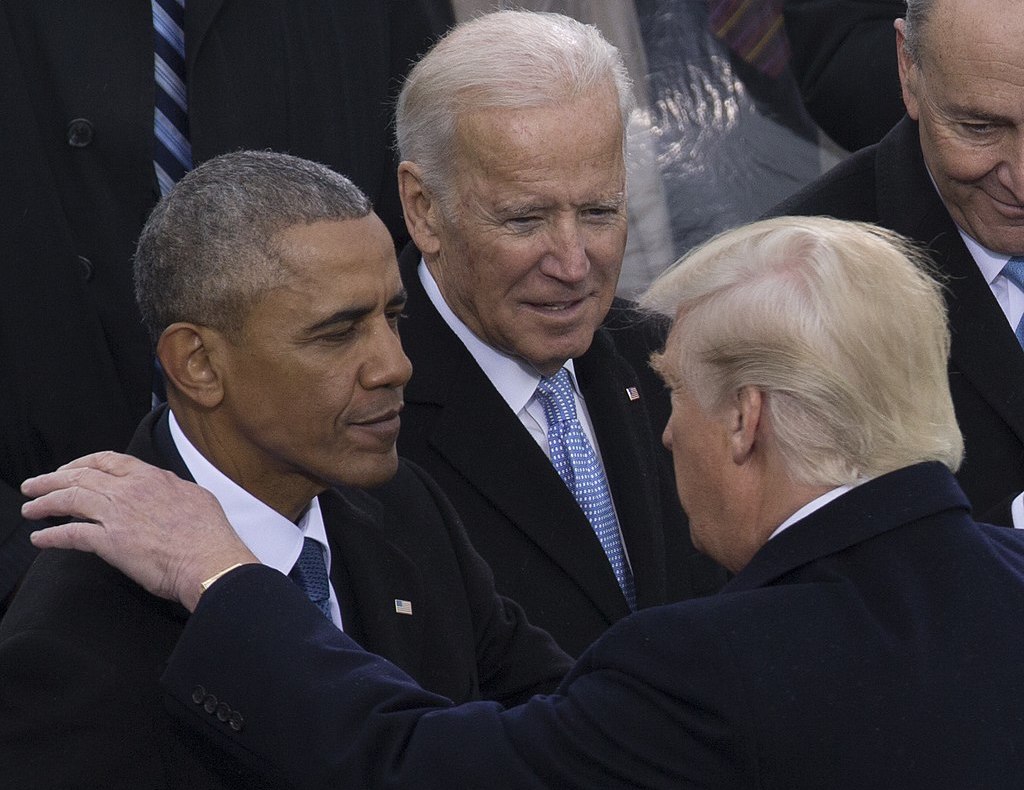Whether rooting for Joe Biden or Donald Trump, all Americans should hope for a peaceful transfer of power on January 20. While the U.S. has historically enjoyed peaceful transfers, many pundits have predicted scenarios of uncertainty after the election. A peaceful outcome is endangered by forces both on the Right and the Left. For one half of the nation, a Biden win would spell disaster, while for the other half, a Trump win would initiate the five stages of grief. If the past is any indicator, the U.S. will see a peaceful transfer of power, but threats of violence on both sides of the aisle threaten this precedent.
The U.S. has had a remarkable track record on peaceful transfers. George Washington, gave up power not once, but twice. After the Revolutionary War, he handed his sword to Congress; after eight years in the presidency, he returned, like Cincinnatus, to his farm. Washington began a profound American tradition of abdication. Every president leaves the White House after either one or two terms, resigned to the fact that his successor might undo the work he has done, but still accepting the outcome. The sole exception to this rule is FDR, who, from his track record, did not understand the importance of the American tradition of abdication. He ran and won four times and was only removed from office by his death. Besides FDR, the presidency has been handed over with almost anticlimax every four to eight years. Although the Bush v. Gore election came down to a recount and was fought in the courts, Gore ultimately conceded peacefully. The pattern has been set: The American people decide, and the candidates must both accept the outcome.
This time around, given a close race, neither side may be willing to concede without a legal battle. Both Trump and Biden have signaled their willingness to drag a close election through the courts by preparing resources. As Ross Douthat argues in the New York Times, fears over Trump refusing to leave office using authoritarian methods are overblown. Trump lacks popularity, power over the media, and has no clout over the military. Additionally, fear-mongering about the Supreme Court simply handing Trump the election is unwarranted. The Supreme Court recently rejected absolute immunity in a 7-2 decision against Trump, clearing the way for a lower court to grant access to his financial documents. Trump’s own two appointees sided with the majority against him. Given her jurisprudence, Amy Coney Barrett would side with the rule of law and not be partial to either party. If Biden loses, it will most likely be while winning the popular vote and after tedious recounts. The Biden campaign can also be expected to bring its grievances to the court given an outcome with which it disagrees. The legal rout of dispute, while certainly messy, would not necessarily spell the end of peaceful transfers. The courts would give both sides a fair hearing in the case of a disputed election.
Potential legal battles notwithstanding, the greater crisis is the willingness of citizens to make their voices heard not through the ballot box, but through violence. The U.S. has been characterized by a system through which citizens can express their views. They are able to attempt to convince others, volunteer for political candidates, and of course, vote for their favored candidate. Responding with violence to an outcome with which you disagree is indefensible. Robust checks and balances will prevent either candidate from seizing power in an authoritarian fashion, but violent action by extremists threatens society. By avoiding too much power placed in an individual, the U.S. has been able to uphold rights to its citizens and ensure stability and prosperity. Peaceful transition of power is a cornerstone of our republic. Let’s hope and pray it stays that way.

